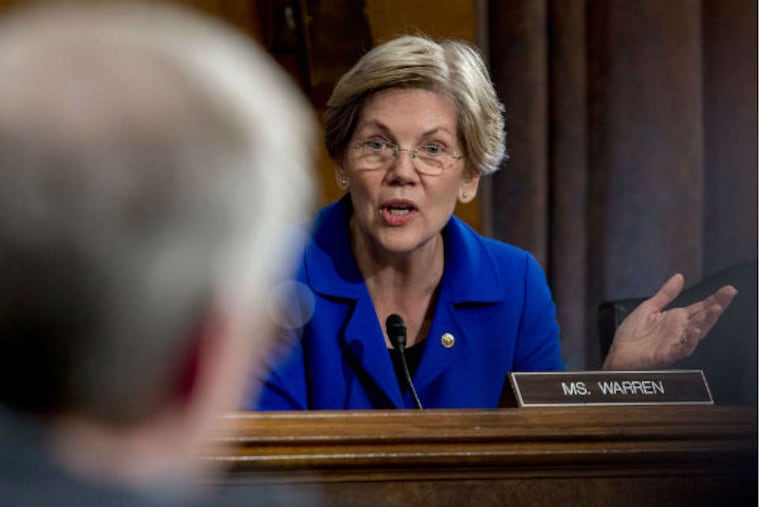Democrats divided on path to 2016
WASHINGTON - In the six weeks since their repudiation in the midterms, Democrats have seen the opening of fissures within their once-disciplined ranks, marking the start of an internal struggle between now and the 2016 election over the ideological identity and tactical direction of the party.

WASHINGTON - In the six weeks since their repudiation in the midterms, Democrats have seen the opening of fissures within their once-disciplined ranks, marking the start of an internal struggle between now and the 2016 election over the ideological identity and tactical direction of the party.
The tension - shown in high relief during the messy final days of the congressional session - is in some ways a mirror image of the stresses within the Republican Party, which has been divided between its tea party and establishment factions in recent years.
In the case of both parties, the argument pits the more populist, purist elements of the base against the more pragmatic center.
For Democrats, "it is a conflict that was looking for an occasion," said William Galston, a senior fellow at the Brookings Institution, who was a policy adviser to former President Bill Clinton. "The election provided the occasion."
Having lost big in November, two wings within the party have been trading recriminations over which was more to blame while jostling for position to be the face of the Democrats going into 2016.
They are personified by Hillary Rodham Clinton, the former secretary of state who is the presumptive presidential front-runner by virtue of her stature and fame, and Sen. Elizabeth Warren of Massachusetts, the anti-Wall Street clarion favored by many on the left to challenge Clinton for the Democratic nomination.
If the loss of the Senate intensified strains within the party, the $1.1 trillion spending bill that passed Saturday night raised two issues that acted as matches to gasoline. One was a provision rolling back portions of the 2010 financial regulatory law known as the Dodd-Frank Act. The other loosened campaign donation limits, allowing the wealthy to give three times the current maximum to the national political parties. That means even more clout for rich donors and the interests they represent.
In both instances, the question was not whether Democrats supported the individual provisions - they generally do not. It was whether individual members considered them so egregious as to merit blowing up a wide-ranging deal to which Senate Majority Leader Harry Reid of Nevada had been a party and for which President Obama was personally lobbying.
"What we saw over the last couple of days is an example of a debate that is probably going to go on for a while in the party," said Jim Manley, a Democratic strategist and former aide to Reid.
Proponents of the legislation argued that they had succeeded in preventing even more provisions weakening Dodd-Frank from being inserted in the bill. And at any rate, they said, the legislation was far better than anything Democrats could expect should they allow the debate to continue into next year, when Republicans will be in control of the House and Senate.
But Warren urged her colleagues to hold the line, particularly against the banks whose political influence she accused her own party of abetting.
"Enough is enough with Wall Street insiders getting key position after key position and the kind of cronyism we have seen in the executive branch," she said in a fiery speech on the Senate floor. "Enough is enough with Citigroup passing eleventh-hour deregulatory provisions that nobody takes ownership over but that everybody comes to regret. Enough is enough."
So strident was her opposition that it drew comparison with Sen. Ted Cruz (R., Texas), who had led the charge against the bill from the right based on opposition to Obama's immigration policies.
Democratic leaders denied any symmetry.
"Elizabeth Warren, even if people don't agree with her, she's constructive. She's not like Ted Cruz," Sen. Charles Schumer of New York said Sunday on CNN. "She's working hard to move things in her direction. And that's a good thing."
On the House side, there also was a Democratic schism. Minority Leader Nancy Pelosi of California marshaled opposition to the spending bill, while her second-in-command, Democratic whip Steny Hoyer of Maryland, voted for it.
As the drama was playing out on Capitol Hill on Friday, more than 300 former Obama campaign staff members released a letter calling on Warren to run, saying, "we want someone who will stand up for working families and take on the Wall Street banks and special interests that took down our economy." Last week, the liberal group Moveon.org also announced that it would put at least $1 million into an effort to draft Warren.
Neither statement mentioned Clinton, who many on the left think is too sympathetic to Wall Street and corporate interests.
"I don't think anyone is dying to have a primary so much as we are to have the right issues debated in this presidential election and beyond," said Steve Hildebrand, who was Obama's 2008 deputy campaign manager. Hildebrand said he has not committed to any candidate.
Democrats who opposed the spending bill claimed a moral victory, with Pelosi writing in a letter to her rank-and-file members that their resistance had "strengthened our position."
It may be that the current struggle will nudge the party further to the left and help it coalesce around a message. Or the episode may have underscored the dysfunction of an era of intense polarization, where meeting in the middle has become all but impossible - even within a single political party.